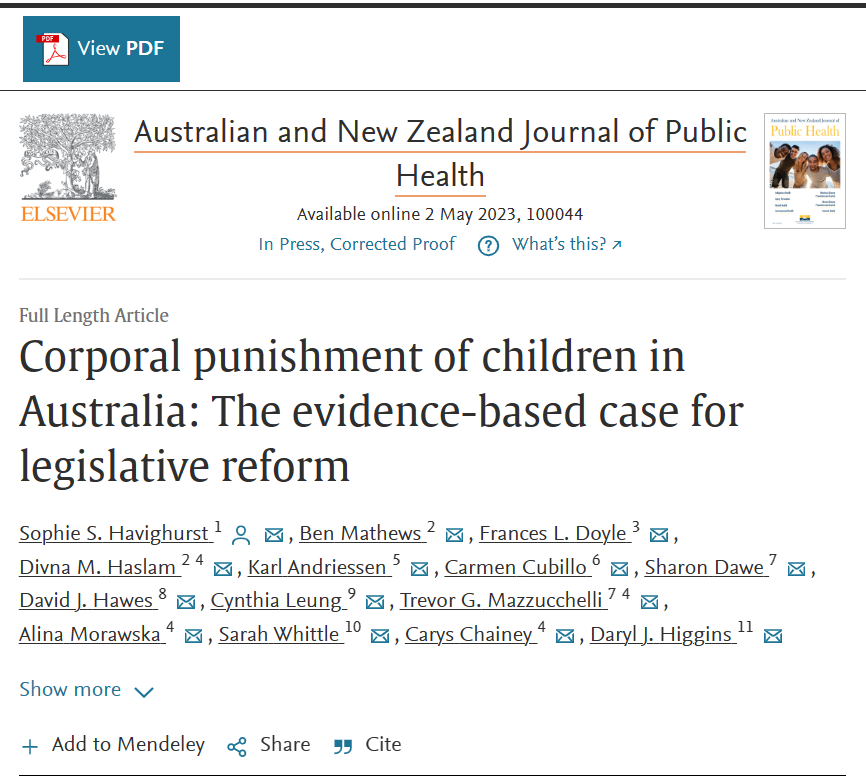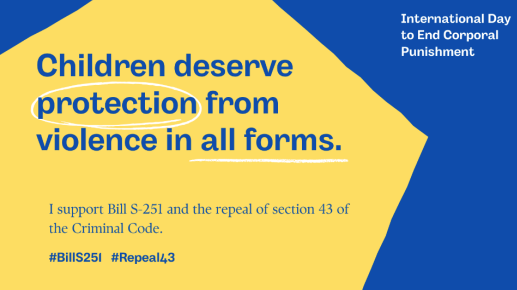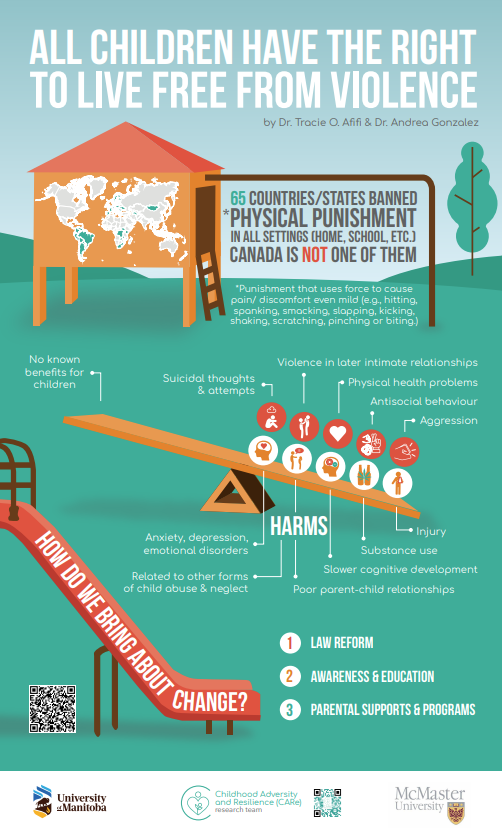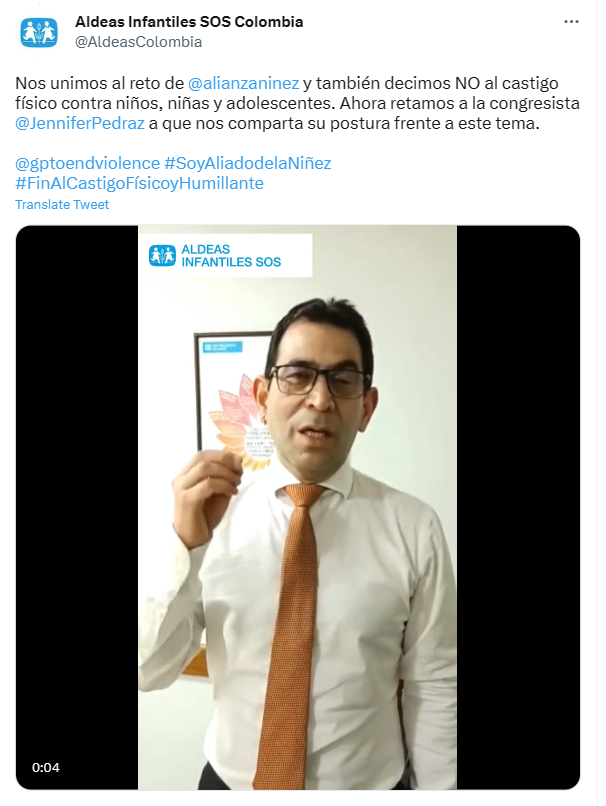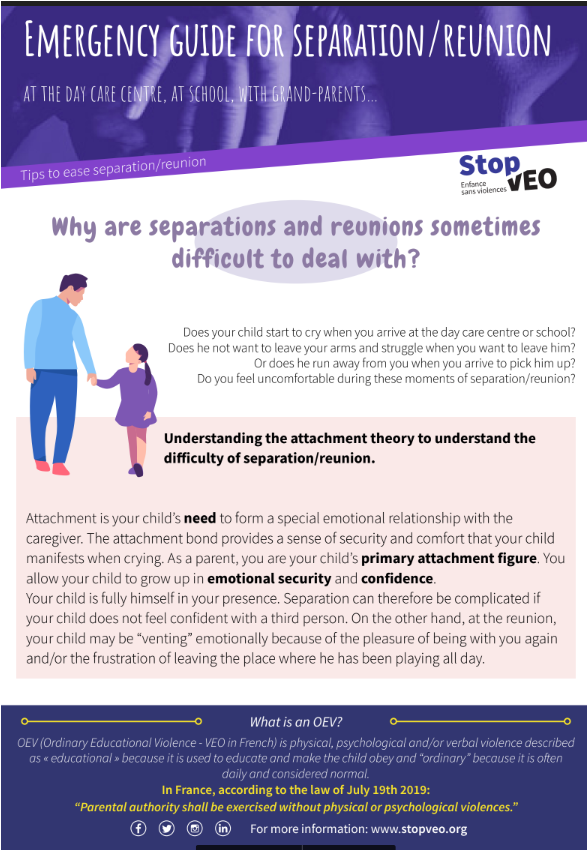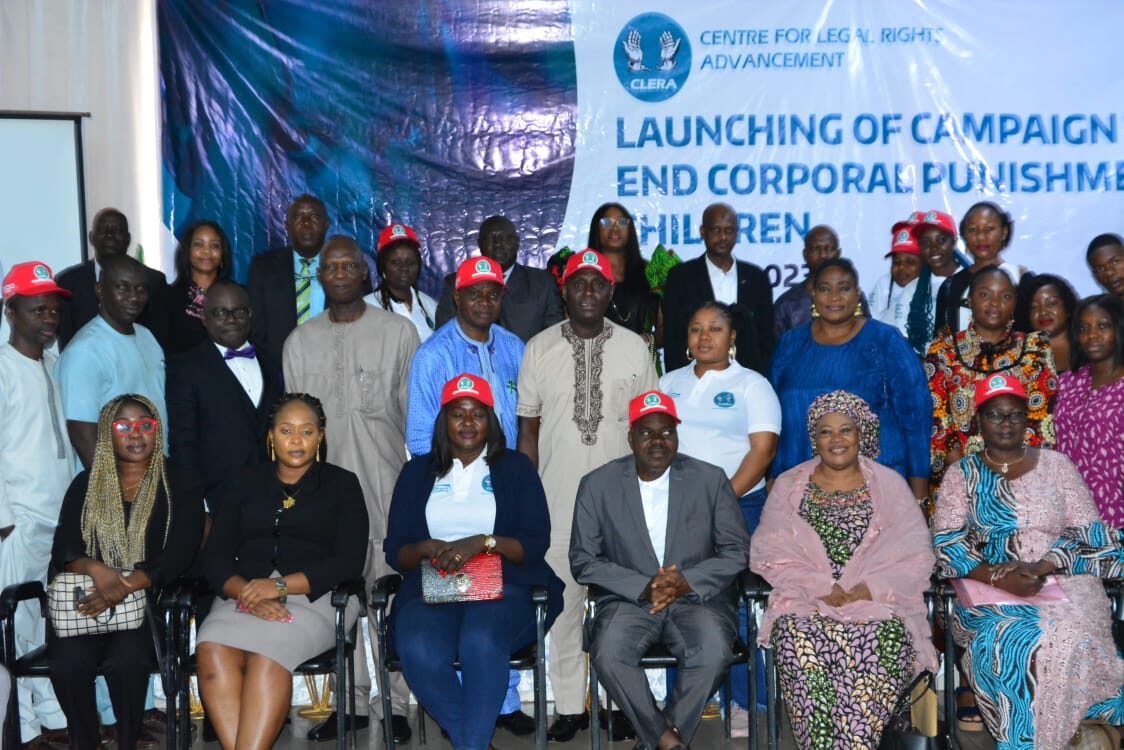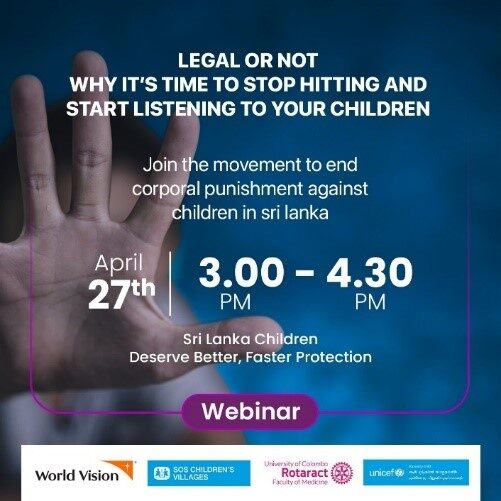International Day to #EndCorporalPunishment 2023: Round up of activities
The International Day to #EndCorporalPunishment is a vital opportunity to raise our voices in calling for an end to violent punishment of children. This year many partners got involved, organising events, launching campaigns, writing articles and producing new resources.
Scroll down to find out what happened in 17 countries and regions across the world!
Australia
The campaign to achieve full prohibition of corporal punishment took a big step forward, as leading academics published a new paper in the Australian and New Zealand Journal of Public Health: Corporal punishment of children in Australia: The evidence-based case for legislative reform - ScienceDirect
There was a lot of media interest, and the team did numerous tv and radio interviews. Here are a few of the articles published:
- Sixty-five countries have banned smacking children – why isn’t Australia one of them? | Australia news | The Guardian
- It’s time to ban corporal punishment of kids in Australia | Pursuit by The University of Melbourne (unimelb.edu.au).
- Smacking ban urged to protect children's mental health | PerthNow
Campaigners now plan to write to all political premiers and justice ministers.
Bahamas
Botswana
Stepping Stones International carried out activities aimed at bringing attention to the issue of corporal punishment, creating dialogue, educating Batswana on the issue, and calling on government to take action to end corporal punishment. They issued a press statement, shared information about positive parenting online and in person and further broadcast their message through radio interviews.
Canada
Bill S-251, which would prohibit all corporal punishment of children in Canada, is currently being debated in the Senate, Canada's upper parliamentary house. The Bill is sponsored by Senator Stan Kutcher.
An energetic advocacy campaign supports the Bill, which would repeal section 43 of the Criminal Code of Canada - which allows “justified” use of force “by way of correction of a pupil or child”.
Campaigners have produced a Rationale for Repeal which makes the case for urgent reform of the law.
The Children’s Hospital of Eastern Ontario (CHEO) – one of the co-authors of the Rationale for Repeal - organised a large campaign calling on the government to repeal section 43.
Campaigners produced advocacy resources to highlight calls for law reform on the International Day.
Colombia
Partners in Colombia shared videos on Twitter explaining why they support #FinAlCastigoFísicoyHumillante and #EndCorporalPunishment. For example: https://twitter.com/AldeasColombia/status/1652047233548689416
East Africa
East African education activists Tutashinda Learning, YouthXYouth and TutaLearn Glocal Services hosted a webinar called ‘How to discipline a child the right way: Applying positive discipline in East Africa’.
Ecuador
The Pontyfical University of Ecuador and the city council of the Metropolitan District of Quito hosted a lecture addressing ‘Progress in the elimination of domestic corporal punishment in Ecuador’.
And the Global Network of Religions for Children Ecuador shared a new podcast: Fin Al Castigo Fisico Y Humiliante EP 3. Fin al Castigo Físico y Humillante - Wear My Shoes | Podcast on Spotify
Ethiopia
The Ethiopian School Readiness Initiative (ESRI), a non-profit organisation in Ethiopia used the International Day as an opportunity to discuss positive child discipline with teachers and parents. ESRI and collaborators have published the results of a survey of parental methods of disciplining children in Ethiopia and have developed and adapted a parent training manual in the eight most common languages of the country.
France
StopVEO – the organisation campaigning for an end to corporal punishment in France – launched a new series of resources in French, Spanish and English to support parents in the challenges of raising children. This short video gives a helpful introduction to the resources.
Hong Kong
Save the Children Hong Kong released new survey findings on public opinion about corporal punishment of children.
- Save The Children Hong Kong Releases Survey Findings On Public Views On Corporal Punishment On Children | MENAFN.COM
- Time for Hong Kong to ban corporal punishment at home | South China Morning Post (scmp.com)
Nigeria
On 3rd May the Centre for Legal Rights Advancement launched a new campaign to end corporal punishment. The launch was attended by Ministers and heads of agencies, NGOs, lawyers, faith organisations, schools and a member of the African Committee of Experts of the Rights and Welfare of Children.
Professor Bem Angwe, former Executive Secretary National Human Rights Commission and past Chairman of National Human Rights Institutions in West Africa, issued a press statement calling on government at all levels to carry out law reforms to officially prohibit corporal punishment of children in all settings. The Statement was aired by the Federal Radio Corporation of Nigeria and featured on numerous network news programmes, national dailies and news network including the social media.
Following the launch an advocacy campaign will be carried out sensitising government officials, parliamentarians and other leaders on the urgent need to end corporal punishment through law reforms and policy measures.
Pakistan
On the 4th May the Children’s Advocacy Network held a consultative meeting on prohibition of corporal punishment in Punjab and issued a statement calling for the enactment of legislation to prohibit corporal punishment. The statement received strong coverage over several media outlets.
Separately, the Parliamentary Child Rights caucus made plans to launch awareness on the rules of the Act passed by Parliament and rules notified by the Ministry of Education. The launch aims to promote collaboration between the Child Rights caucus, Ministry of Law and Justice and Ministry of Education and hold sessions with key stakeholders on implementation.
In addition, Cities for Children are developing resources to support positive discipline training for teachers. On 30th April they launched a new animation about ending violent punishment in schools, supported by a social media kit to help spread the word.
Other media coverage in Pakistan:
- Corporal punishment: for whose benefit? - Daily Times
- Debunking the myths around corporal punishment (tribune.com.pk)
Rwanda
Singapore
Sri Lanka
On April 27th World Vision, SOS Children’s Villages, UNICEF & the University of Colombo hosted a webinar called ‘Legal or Not: Why it is time to stop hitting and start listening to your children’.
Tanzania
UNICEF Tanzania coordinated a digital campaign to #EndCorporalPunishment in the run-up to the International Day. They aimed to engage wider voices, especially those of young people, in the conversation to drive public demand for prohibition of corporal punishment in schools. UNICEF developed content and sharing inspiring examples of teachers who had found positive discipline methods more effective at engaging students in their learning. Ministers and Parliamentarians were among those who engaged and reshared the campaign’s content, reaching millions using the hashtag #SioLazima.
Uganda
Civil society organizations launched a positive discipline coalition with the objective of promoting non-violent discipline in schools and communities.
Organisational engagement
Save the Children
- International Day to End Corporal Punishment: Only 14% of world’s children legally protected from corporal punishment | Save the Children International
- Changing society’s mind-set: Corporal punishment is never ok | Save the Children International
- Barnens världskarta - länder som förbjudit våld mot barn - Rädda Barnen (raddabarnen.se)
- (233) Children's World Map - YouTube
ECDAN
Apologies for any activities we have missed. We are always pleased to receive information about other activities to #EndCorporalPunishment !

